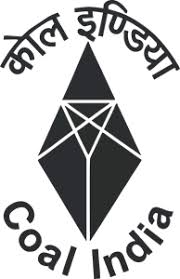
COAL INDIA MANAGEMENT TRAINEE MINING 2017 SYLLABUS
COAL INDIA LIMITED MANAGEMENT TRAINEE 2017 MINING SYLLABUS
RECRUITMENT OF MANAGEMENT TRAINEES 2016-17
SYLLABUS FOR PAPER-I :COMMON FOR ALL DISCIPLINES
General Knowledge/awareness
Everyday Science, Scientific Research, Sports, Indian Culture, Indian History, Indian national movement, World & Indian Geography, Natural resources ,Indian Economy, Indian Polity, Indian Constitution,National & International current affairs, Environment, India’s Agriculture, Trade & Commerce, Basic Information technology.
Numerical ability
Number System,decimals,fractions and relationships between numbers,Percentage. Ratio & Proportion, Square roots, Averages, Interest, Profit and Loss, Discount, Mixture and Allegation, Time and distance, Time & Work, Basic algebraic identities of School Algebra, , Factor, Heights and Distances. A.P. & G.P.Series
Reasoning
Analogies, similarities and differences, space visualization, spatial orientation, problem solving, analysis, judgement, decision making, Visual memory, discrimination, observation, relationship concepts, arithmetical reasoning and figural classification, arithmetic number series, non- verbal series, coding and decoding, Word Building statement conclusion, syllogistic reasoning ,puzzle, Venn Diagrams , Space Visualization , Symbolic/Number Classification, Figural Classification etc.
General English
Error recognition, fill in the blanks (verbs,Preposition etc.) synonyms, antonyms, spelling/detecting Mis-spelt words, idioms & phrases, one word
substitution, sentences structure, Sentence completion, shuffling of sentence parts, shuffling of sentences in a passage, comprehension passage
SYLLABUS FOR PAPER-II : MINING ENGINEERING(Post Code 11)
Mine Development: Methods of access to deposits; Underground drivages; Drilling methods and machines; Explosives, blasting devices and practices.Mine Surveying: Levels and leveling, theodolite, tacheometry, triangulation; Contouring; Errors and adjustments; Correlation; Underground surveying;Curves; Photogrammetry; Field astronomy; EDM and Total Station; Introductory GPS .
Engineering Mechanics: Equivalent force systems; Equations of equilibrium; Two dimensional frames and trusses; Free body diagrams; Friction forces; Particle kinematics and dynamics; Beam analysis.
Geomechanics: Geo-technical properties of rocks; Rock mass classification; Instrumentation and stress measurement techniques; Theories of rock failure; Ground vibrations; Stress distribution around mine openings; Subsidence; Rock bursts and coal bumps; Slope stability.
Ground Control: Design of pillars; Roof supporting systems; Mine filling.
Mining Methods: Surface mining: layout, development, loading, transportation and mechanization, continuous surface mining systems;
Underground coal mining: bord and pillar systems, room and pillar mining, longwall mining, thick seam mining methods; highwall mining; Underground metal mining: open, supported and caved stoping methods, stope mechanization, ore handling systems.
Mining Machinery: Generation and transmission of mechanical, hydraulic and pneumatic power; Materials handling: haulages, conveyors, face and development machinery, hoisting systems, pumps, crushers.
Surface Environment: Air, water and soil pollution : Standards of quality, causes and dispersion of contamination, and control; Noise; Land reclamation. Mine Ventilation: Underground atmosphere; Heat load sources and thermal environment, air cooling; Mechanics of air flow, distribution, natural and mechanical ventilation; Mine fans and their usage; Auxiliary ventilation; Ventilation planning; Ventilation networks.
Subsurface Hazards: Mine Gases. Underground hazards from fires, explosions, dust and inundation; Rescue apparatus and practices; Safety in
mines; Accident data analysis; Mine lighting; Mine legislation; Occupational safety.
Mine Economics: Mineral resource classification; Discounted cash flow analysis; Mine valuation; Mine investment analysis; Mineral taxation.
Mine Planning: Sampling methods, practices and interpretation; Reserve estimation techniques: Basics of geostatistics and quality control; Optimization of facility location; Work-study.
Systems Engineering: Concepts of reliability; Reliability of simple systems; Maintainability and availability; Linear programming, transportation and assignment problems; Network analysis; Inventory models; Queueing theory; Basics of simulation


No comments added yet!